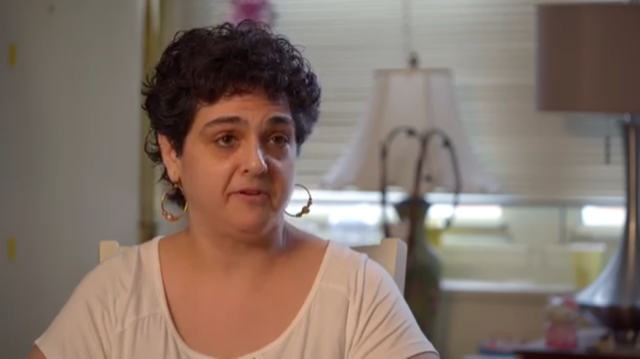SHAME ON YOU, ANDERSON COOPER: 60 Minutes Mocking the ADA
Arlene Mayerson, Directing Attorney, Disability Rights Education and Defense Fund
Anderson Cooper would be the first to call out Donald Trump’s ridicule of a reporter with a disability with righteous indignation. Yet, on December 4, 2016 Cooper used the 60 Minutes broadcast to throw people with disabilities under the bus in the name of journalism. He used his power and prestige to denigrate the Americans with Disabilities Act (ADA) and the honorable lawyers that enforce it. Cooper could not have been more successful, if his intent was to lead the parade of horribles against the ADA. I suggest that presenting a skewed piece of journalism which serves only to undermine the first national law providing civil rights protections for people with disabilities is at least as harmful as mocking a reporter with a disability.
Under the auspices of doing a story on the anniversary of the ADA, Anderson Cooper and his team came to the birthplace of the disability movement, Berkeley, California, and talked to many who have benefitted from the ADA. They spent hours with two of the most honorable lawyers one will ever meet, Lainey Feingold and Linda Dardarian, who have done a world of good to make America more accessible to people with disabilities. Most of this change came about as a result of cooperative negotiations between these lawyers and the businesses seeking these clients as customers. From accessible ATM’s where blind individuals can bank, to traffic lights with sound so blind pedestrians can safely cross the street, these negotiated settlements have allowed access to basic community life for the millions of blind Americans who had been deprived of the daily independence we all take for granted.
Disability rights advocates were both figuratively and literally decapitated in the broadcast
Feingold and Dardarian took the time to explain to Cooper and his CBS colleagues various successful ways to provide access for people with disabilities. They rightfully expected a sound journalistic piece that would highlight these options.
So, what did Cooper spotlight in his story on the ADA? A tempest in a teapot: a story about a few lawyers who file a lot of frivolous suits against small businesses. Those stories are at most a footnote to the historic story of inclusion of a large segment of our population previously excluded by unnecessary barriers and unexamined prejudice. Cooper instead chose to make the successes of the ADA a mere footnote in his hatchet job of a piece.
I have been practicing disability law for almost 40 years, as the Directing Attorney of Disability Rights Education and Defense Fund, Inc. (DREDF). We were intimately involved in the passage the ADA in 1990, the first law in history protecting the civil rights of people with disabilities in order to reverse centuries of exclusion, segregation and extreme prejudice against people with disabilities. The stories Congress heard about how poorly people with disabilities have been treated in America resulted in a sweeping bi-partisan approval of the ADA. Since passage, we at DREDF have used the ADA to allow children with diabetes to attend school, to allow people who are blind and deaf to have access to the rapidly growing world of e-commerce and online education, to allow people who had no options other than institutionalization to live in the community with the rest of us, to allow people with disabilities access to basic health care barred by inaccessible offices and equipment, and so much more. The only reference to DREDF in the piece was a headless shot of our development director using a walker. She did not volunteer to be used this way.
DREDF, Dardarian, and Feingold are not alone in our pursuit of justice for people with disabilities. The Disability Law Bar Association is comprised of over 250 lawyers who are among of the most honest, sincere, passionate and skillful lawyers one could ever meet. These lawyers do the profession of law proud by using their skills to open doors that have been closed shut too long.
But, Cooper would probably say (as you, the reader, might) that he was just “reporting” the fact that unscrupulous lawyers bring frivolous claims under the ADA to the detriment of small business owners. But, therein lies the problem that was all too evident in this election cycle — treating the outlier as the norm, the exceptional as the ordinary and the abuse as the practice.
It does not require an exhaustive study of biased journalism to recognize the fact that selective reporting, even if based in truth, can serve the nefarious purpose of perpetuating an untrue impression. Take for example the widely reported story that a girl died after receiving the cervical-cancer HPV vaccine, while the fact that 1.4 million girls received the vaccine with only beneficial results goes unreported. Whether it is called selective reporting or cherry picking, the 60 Minutes piece on the ADA took the rare abuse of the ADA and made it the story. That is a disservice to people with disabilities who finally have a civil rights law that challenges centuries old barriers and prejudice. The Americans with Disabilities Act is one of the most important advances in modern history; and it was presented as a scam. Shame on you, Anderson Cooper.








